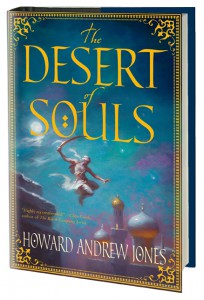How to Get a Book Deal
 In late July of 2009 I got an offer for a historical fantasy novel from St. Martin’s imprint Thomas Dunne featuring my series characters, Dabir and Asim. The deal itself reads anti-climatically, which is why I delayed posting about it. But I think that there’s something to be learned from the story of publication, so I’ve decided to share it.
In late July of 2009 I got an offer for a historical fantasy novel from St. Martin’s imprint Thomas Dunne featuring my series characters, Dabir and Asim. The deal itself reads anti-climatically, which is why I delayed posting about it. But I think that there’s something to be learned from the story of publication, so I’ve decided to share it.
I finished revising a book, I gave it to a friend, he showed it to his editor, I got an offer, I talked to agents of two writer friends, agonized about which agent to select, then chose one. Boiled down, the process sounds simple; after all, I’m just one of those lucky guys who wrote a novel and showed it to a friend, then got a book deal after just a few weeks from the first pro who looked at it. Easy as pie, right? This account of events manages to miss a couple of things.
The deal happened fast – if you leave off the year of drafting, and that I knew the characters of the novel so well because I’d been writing short stories about them for nine years. Then there’s the fact that before this book deal are twenty preceding years of sending other novels out to publishers and agents and collecting rejections… I honestly am not sure how many novels I’ve written before this. Sometimes they’d been rewritten so many times that each draft was a completely different animal (and one that still got rejected). It’s taken me a lot longer to get here than I would have liked, but I have to say, I appreciate it far much more than I would have if I’d just fallen into it. Apparently I’m not a fast learner, but I am really stubborn.
Nor should anyone reading my story gloss over the importance of friends. I didn’t just happen to have a friend, Scott Oden, who had multiple book deals, an editor, and an agent. It’s not as though Scott’s my next door neighbor. Scott gives a fine accounting of how we became friends here and it’s illustrative of an important point. Writers should not be islands unto themselves – they should reach out to kindred spirits. If I had remained in my writerly cave, I would not have a book deal.
When I appear in an anthology I try to read the work of the other authors, and if I find like-minded spirits, I drop them a line. I do the same if I’m reading some reviews I like, or a novel I like. I write the author an e-mail. Sometimes they don’t respond. Sometimes they do and we exchange a few cordial notes. Sometimes we become occasional pen pals, and sometimes there is so much commonality we become friends.
Someone once accused me of running a deliberate campaign to promote myself, but I’m not that mercenary, and no one I’ve become friends with this way is stupid enough to be tricked by a social climber pretending to be their pal. While I’m basically an introvert, I’m pretty social for a writer, and I get lonely. Writing, hell, I guess any art I can think of, is a lonely business. When I see someone doing something I admire, I want to reach out and tell them, and maybe pick their brain a little. It’s good to exchange notes with other writers. How do they go about it? How do they wrestle with the demons, meet their deadlines, get so many words a day? What writers inspire them? How did they learn about this trick or that… you get the idea. And since I write sword-and-sorcery or heroic fiction or, at the least, stories with adventure, when I first started seeing print it was hard to find other short fiction writers with a similar aesthetic because so few magazines were open to that kind of thing. I wanted to meet other people who were as into this kind of thing as I was. As a result, some of my dearest friends today are people I met because I wanted to compare notes with like-minded folks.
In short, or in long, then, the lesson I didn’t understand I was learning as I was living it is this: become part of the community if you want to become part of the industry. Read the authors and reviewers and reach out to people you respect, or with whom you feel a kindred spirit. And keep writing.
4 Comments